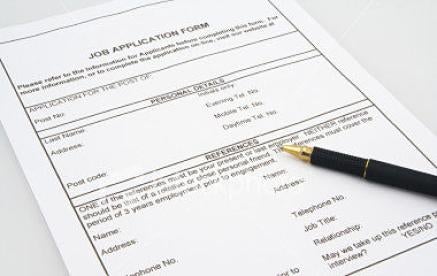On April 5, 2017, the New York City Council passed Intro No. 1253-2016 restricting an employer’s ability to ask job applicants about their salary, benefits, or other compensation history during the hiring process. The legislation amends the New York City Human Rights Law (HRL) and applies to private employers in New York City with four or more employees. New York City Mayor Bill de Blasio has publicly supported the bill, but has not yet signed it into law. Last year, Mayor de Blasio signed a similar bill banning city agencies from asking about salary histories and is expected to sign this bill as well. It will take effect 180 days after he has signed it.
Background
Although it is already unlawful under New York City law for an employer to discriminate against a person “in compensation or in terms, conditions or privileges of employment” on the basis of gender, this bill is intended to eliminate employers’ reliance on prior salary histories to determine compensation. It is part of an effort to strengthen equal pay provisions by targeting some of the factors that perpetuate the gender pay gap. The bill follows similar measures taken in other states such as Massachusetts, Puerto Rico, and Philadelphia. Some similar local and state laws have been challenged. For instance, the Chamber of Commerce for Greater Philadelphia filed a federal lawsuit earlier this week challenging the city ordinance on First Amendment grounds. A similar challenge to the New York City bill is possible.
Unlawful Conduct
The law will make it an unlawful discriminatory practice for an employer to inquire about the salary history of a job applicant, which includes the applicant’s current or prior wage, benefits, or other compensation, or otherwise rely on salary history during the hiring process. Employers will also be prohibited from communicating such inquiries to an applicant’s current or prior employer, in writing or otherwise, for the purpose of obtaining such applicant’s salary history. Similarly, the new law will make it unlawful for an employer to conduct a search of publicly available records or reports for the purpose of obtaining an applicant’s salary history.
Permissible Inquiries
Notwithstanding the above prohibitions, not all communications about salary histories are prohibited. Where a job applicant voluntarily, and without prompting, discloses his or her salary history, the employer may consider that salary history to determine the applicant’s compensation and to verify it. Furthermore, the legislation permits employers to:
-
inquire about “any objective measure of the applicant’s productivity such as revenue, sales, or other production reports”;
-
inform applicants in writing or otherwise about the position’s proposed or anticipated salary or salary range; and
-
engage in a discussion with a job applicant about his or her “expectations with respect to salary, benefits and other compensation,” so long as they do not inquire about salary history.
Exceptions
Notably, the legislation only applies to applicants—not existing employees. The law does not apply to:
-
instances in which a state, federal, or local law specifically authorizes the disclosure or verification of salary history for employment purposes, or instances that specifically require knowledge of salary history to determine a prospective employee’s compensation;
-
internal employees transferring or promoted within an organization;
-
a background check intended to verify an applicant’s disclosure of non-salary related information, so long as such background check does not disclose the applicant’s salary history; or
-
applicants for public employee positions for which compensation is established by collective bargaining.
Employers inquiring about salary histories in the hiring process based on one of these exceptions may want to proceed with caution. As this law is an amendment of the HRL, courts can be expected to construe its provisions liberally in order to accomplish the broad and remedial purposes of the HRL.
Penalties for Violations
Under this law, employers that improperly inquire about or rely upon a job applicant’s salary history may be subject to compensatory damages (including back and front pay), punitive damages, and attorneys’ fees in litigation brought by an aggrieved individual. The New York City Commission on Human Rights may, on its own investigation, impose a civil penalty for violations and can seek punitive damages for willful violations.
How Should Employers Prepare?
To prepare for this law’s implementation, employers should carefully review their current practices to ensure that:
-
applications do not seek or require applicants to disclose their prior salaries, benefits, or other compensation;
-
handbook policies and similar documents do not call for providing one’s salary history as part of a job interview or reference check; and
-
all employees involved in the recruitment process are informed of and trained on the requirements of the new law.






 i
i

